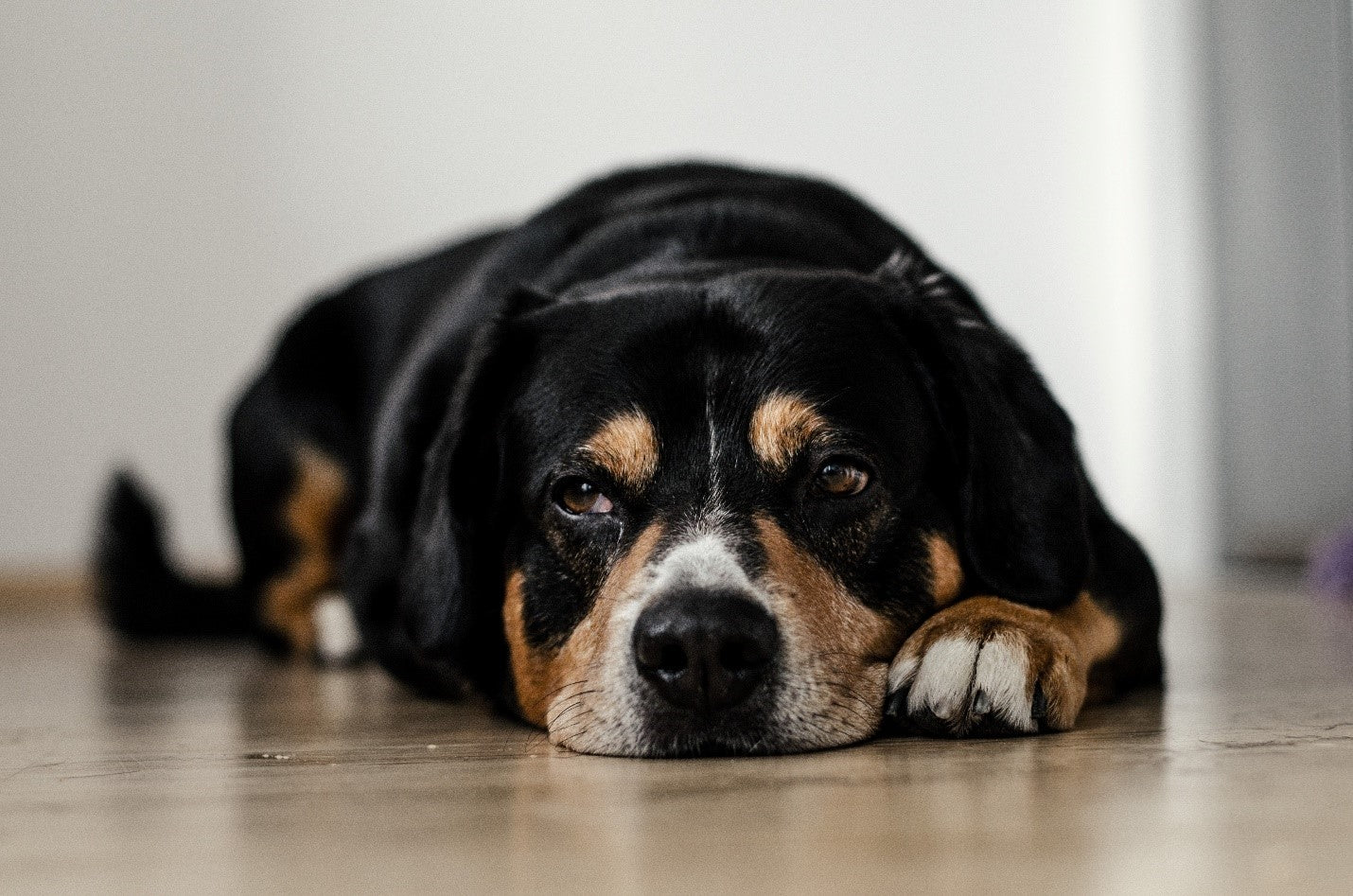Your dog’s weight is more than a vanity issue—it can have serious implications for their health and even shorten their lifespan. According to the Association for Pet Obesity Prevention, an estimated 54% of adult dogs in the United States are overweight or obese. Even though most dog owners likely know that their pet's weight is something they need to keep an eye on, many may not realize just how important it is. In this post, we will take a closer look at why your dog's weight matters and what you can do to help them stay healthy.
What is an ideal weight for a dog and why it matters?
Your dog’s weight matters more than just a number on the scale. It is an important indicator of your dog’s overall health. Just like humans, dogs come in all shapes and sizes. The ideal weight for a dog is different depending on their breed and body type. Smaller dogs tend to be lighter, while larger breeds can carry more pounds without feeling too heavy or slowing them down too much in games like fetch!
Maintaining your dog’s ideal weight matters because it helps to prevent health problems such as obesity, joint problems, and diabetes. Obesity is especially harmful to dogs because it puts extra strain on their heart and lungs. On the other hand, being too skinny can also be detrimental to your dog’s health, as it can lead to muscle loss and a weakened immune system.
How to tell if your dog is overweight or obese
A quick and effortless way to tell if your dog is overweight is by looking at your dog from above. Are their hips and waist easily visible? Or does their belly hang down low and sag when they move. If their body is more rectangular in shape, with no defined waist, then they may be carrying too much weight. Another way to tell is by feeling their ribs. You should be able to feel each individual rib; there should not be a layer of fat covering them, however you should never be able to see their ribs. If you cannot feel their ribs easily, or if there is a thick layer of fat over them, then your dog is likely overweight or obese.
Finally, pay attention to your dog’s energy levels and mobility. Dogs who are overweight or obese also have a harder time exercising and can tire more easily. Is your once energetic pup now sluggish and prone to panting? Do they struggle to jump up on the couch or go for walks like they used to? If so, excess weight may be to blame.
It is generally recommended that dogs maintain a body condition score (BCS) of 4-5/9. A This means that your dog is neither too skinny nor too fat – they have an ideal amount of muscle mass and body fat. So, if you are not sure what an ideal weight for your dog is, talk to your veterinarian. They can help you determine your dog’s ideal weight and create a customized Health Extension diet and exercise plan to help them reach and maintain their ideal weight.
The health risks associated with being overweight or obese in dogs
As a responsible pet owner, it is important to be aware of the health risks associated with being overweight or obese in dogs. Your dog’s weight matters, so while carrying a few extra pounds may not seem like a big deal, being overweight or obese can put your dog at risk for a number of health problems, including joint pain, diabetes, respiratory difficulties, and cancer. In addition, dogs who are carrying around excess weight are more likely to suffer from heatstroke and fatigue and can shorten your dog’s life span by up to two years. With so many risks associated with being overweight or obese, it is important to make sure your dog’s weight stays at a healthy level.
While there are a number of factors that contribute to weight gain in dogs, the most common cause is simply overeating. If your dog is eating more calories than they are burning, they will slowly start to gain weight. Oftentimes, pet owners are not aware that their dog is overeating until they start to see the physical signs of weight gain.
How to help your dog lose weight safely and effectively
The good news is that there are plenty of safe and effective ways to help your dog lose weight. Check out Health Extension’s blog titled “How Much Food Should I Feed My Dog?” for helpful tips to maintaining a healthy weight for your pooch.
Your dog’s weight matters, so take a trip to the vet to get a baseline weight and body condition score. From there, you can collaborate with your vet to create a weight loss plan that is tailored to your dog’s individual needs. This may involve changes to their diet to a low-calorie food like Health Extension Lite Chicken & Brown Rice Recipe and feeding smaller meals more often throughout the day. It is important to make any dietary changes slowly and gradually to avoid stomach upset.
Avoid feeding your dog table scraps. Table scraps are often high in fat and calories and can lead to weight gain in dogs. If you want to treat your dog, give them a small piece of lean meat or a healthy dog treat instead of table scraps.
Be sure to get plenty of exercise with your dog – not only will it help them lose weight, but it will also strengthen the bond between you and your dog. Dogs need at least 30 minutes of exercise every day to stay healthy. If your dog is overweight, you may need to start slowly with shorter walks or low-impact activities like swimming. Check out Health Extension’s SNUGAROOZ for a healthy game of tug or fetch to get your dog motivated to get up and move!
As you can see, maintaining your dog’s weight matters not just for their appearance, but also for their long-term health. If your dog is overweight or obese, consult with your veterinarian about the best way to help them lose weight safely and effectively. By following these tips and working together to keep your dog healthy and happy, you can ensure that they will be by your side for many years to come.



